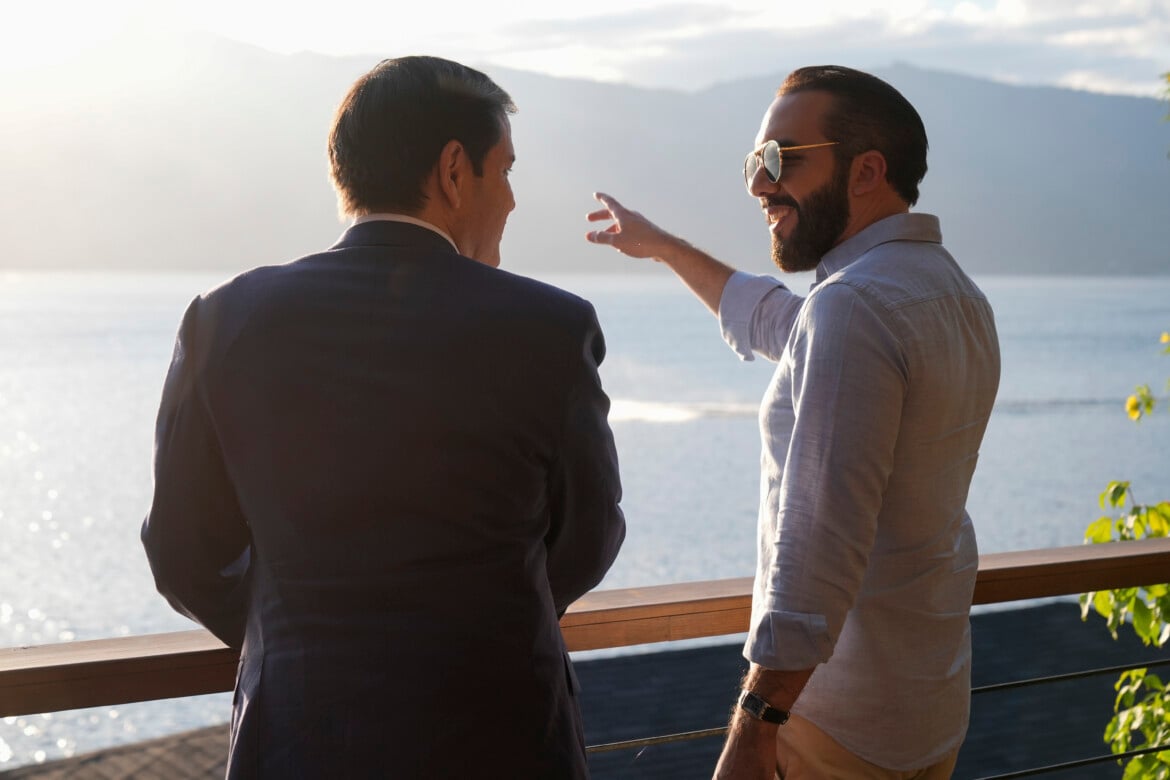Analysis
Rubio’s Latin American tour wins spoils for MAGA
The offer to the United States of an “opportunity to outsource part of its prison system” was later confirmed by Bukele on X, also receiving Elon Musk's enthusiastic endorsement: “Great idea!!”

Salvadoran President Nayib Bukele, already a beloved figure of the U.S. MAGA movement, who was unsurprisingly among the few foreign leaders invited to Trump's inauguration on Jan. 20, really wanted to make an impression.
In his meeting with Secretary of State Marco Rubio on the second stop, after Panama, of the latter’s Central American tour, Bukele managed to one-up his previous pledge, already much appreciated by the U.S. administration, to take in not only Salvadoran migrants but also criminals of any nationality who are in the United States illegally, including members of Latin American gangs such as MS-13 (or Mara Salvatrucha, a transnational criminal organization of associated Central American gangs), or Tren de Aragua, the Venezuelan mega-gang that has spread to many other countries on the continent.
Now, Bukele “offered to house in his jails dangerous American criminals, including US citizens and legal residents,” Rubio announced, “an extraordinary gesture never before extended by any country” and a welcome addition to “the most unprecedented and extraordinary migratory agreement anywhere in the world” signed with the Salvadoran president. Speaking to reporters, Rubio added that the offer was “an act of extraordinary friendship to our country,” confirming that he spoke about it with President Trump.
The offer to the United States of an “opportunity to outsource part of its prison system” was later confirmed by Bukele on X, also receiving Elon Musk's enthusiastic endorsement: “Great idea!!” The Salvadoran president said the country was “willing to take in only convicted criminals (including convicted U.S. citizens) into our mega-prison (CECOT) in exchange for a fee,” which, he explained, “would be relatively low for the U.S. but significant for us, making our entire prison system sustainable.”
The flagship of that system is the Centro de Confinamiento del Terrorismo (“Terrorism Detention Center,” CECOT), the enormous maximum-security prison in Tecoluca, built at the end of 2022 as part of a no-holds-barred and unscrupulous fight against criminal gangs in El Salvador (with the total absence of any preventive measures), intended to house up to 40,000 inmates.
This model of fighting gangs, centered on repression – all it takes is a tattoo to end up in jail, and there is little concern about whether some are former pandilleros who had turned their lives around – and the violation of human rights, including arbitrary detentions and torture, has made Bukele famous and gotten him a high approval rating among the population due to the collapse of the crime rates: from 2015 to 2024, with the arrest of 84,260 real or alleged criminal gang members, the homicide rate dropped from 106.3 to 1.9 per 100,000 inhabitants, and Bukele is convinced that the number will fall below one in 2025. The start of the year was highly auspicious for him: in the first 28 days of January there were 24 days without any homicides, according to official data from the Civil Police.
This model has aroused great interest among other governments and has also earned praise from Rubio, who obviously has little concern for the complaints of human rights organizations, such as that of Amnesty International which has pointed out that “state violence is gradually replacing gang violence.”
It is not clear, however, whether the U.S. government will actually accept Bukele's offer, which is highly problematic from a legal standpoint: any attempt by the Trump administration to deport U.S. citizens, incarcerated or not, to another country would meet significant legal resistance.
Whether the proposal is feasible or not, Rubio is certainly on a roll. After making the Panamanian government led by José Raúl Mulino get back in line, which immediately said it would not renew the agreement with China on the New Silk Road, that it would rediscuss the management of the interoceanic canal ports, currently entrusted to Hong Kong's Hutchison Ports, and that it would cooperate with the U.S. on new investments, the U.S. secretary of state could boast of an “extraordinary” deal on the second leg of his trip. And it is likely that the remaining stops – Guatemala, Costa Rica and the Dominican Republic – will also yield fine spoils.
Originally published at https://ilmanifesto.it/bukele-prova-a-stupire-rubio-date-a-noi-i-vostri-criminali on 2025-02-05
